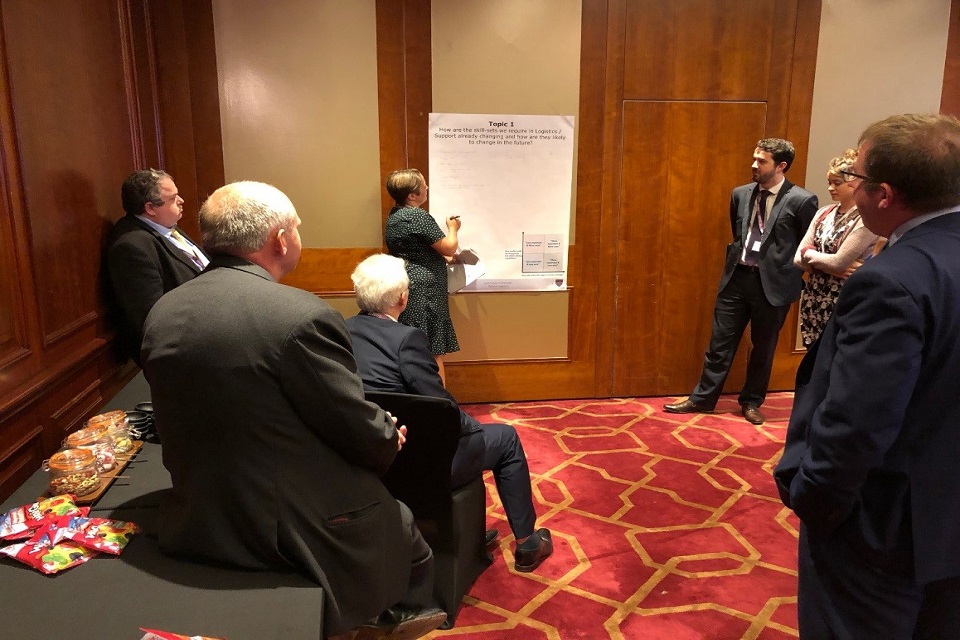Around 6,000 jobs are already supported by the project. Many of those are within the 2,000 businesses that have delivered work supporting the project, ranging from conducting the largest ground investigation programme in British history to the planting of over 7 million trees and shrubs.
HS2 Ltd Chairman, Sir David Higgins, is expected to say:
Britain invented the modern railway and it is right that, because of HS2, we have the opportunity once again to lead the world in this important sector.
As we move towards construction, we are already seeing thousands of people around the country working to bring Britain’s new railway to reality. We’re in the middle of the largest programme of early works that the UK has ever seen, leading to major construction next year; supporting jobs and businesses around the UK and building the skills base we need to export around the world.
On top of this, people only need to look to Birmingham and its booming economy to see the benefits that HS2 will bring right around the country happening already in the Midlands. Further proof that HS2 is more than just a railway.
Transport Secretary, Chris Grayling, said:
HS2 will not only be the backbone of our national network, but a truly ambitious project that will drive huge economic growth right across the country.
It will create significant benefits for all, delivering improved connections between our major cities, introducing more seats and services for passengers, and creating thousands of new jobs and opportunities for people and businesses across the UK.
Sir David Higgins has been instrumental in laying the groundwork for the success of this vital project. As this report shows, before he steps down from the role of chairman, HS2 is already delivering on its incredible potential, with jobs and business opportunities already being created well before the first services are expected in 2026.
The HS2 programme will span over 15 years and then continue to provide direct economic benefits through operation and maintenance contracts once in operation. In addition to this, cities and regions across the UK are already seeing the benefit HS2 will bring, attracting new investment outside of London and the South East, beginning to rebalance the UK economy.
The report, HS2: Realising the potential, launched at an event in Leeds to an audience of over 100 business and civic leaders from across the country, also points to the transformation in rail travel that the new high speed trains will have on travel in the UK. HS2 trains will call at over 25 stations from London to Scotland, serving around 30 million people in regions representing over half of the UK economy.
Core Cities UK Vice Chair and Leader of Newcastle City Council, Cllr Nick Forbes, said:
Core Cities UK Leaders and Mayors believe HS2 is of enormous economic benefit to all our cities, even those not directly on the route. It will pay for itself many times over. And there is no reason why HS2 should be the end of the story, we believe it can be a first step towards high speed rail for the whole of the UK.
Ensuring that passengers can move around the country easily can help companies build a critical mass of skills, talent and expertise which is necessary to increase regional productivity. But passengers also need to have confidence in rail travel, knowing that their journey will be stress free and comfortable.
Passengers on the new high speed network will experience fast, reliable services, rivalling those of other high speed networks across the globe. Trains, stations and ticketing are being designed to revolutionise the user experience, ensuring that future generations of travellers will be catered for on HS2, with any delays to service on high speed lines no longer than an average of 30 seconds.
Sir David Higgins continued:
HS2 services will be unrecognisable to today’s commuters. A service that is dependable, if you’re travelling for work, attending a meeting, or seeing family and friends, the standard set by HS2 will be world class, with the stress of tickets, delays and other frustrations designed out of the system. HS2 will be judged, in the end, if it can be considered a railway for everyone.
